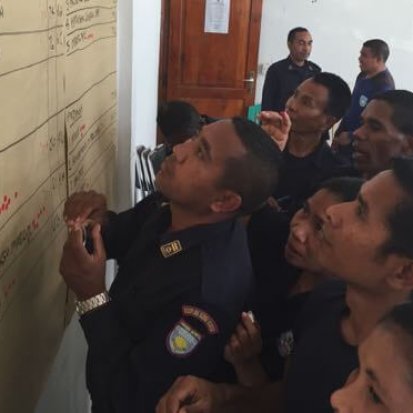
Background: As part of the Australian Civil-Military Centre's (ACMC) broader role in facilitating improvements in civil-military-police responses to international humanitarian assistance, disaster relief, peace and stabilisation activities, ACMC engaged Sustineo to identify the cross-cutting skills required for effective civil-military-police interaction, coordination and collaboration.
The original conceptualisation of the task was framed in terms of skills, with the expectation that the support required to address this need would be provided through learning and development offerings. However, the focus of the task evolved over the course of the assignment in response to the information collected and analysed through stakeholder consultation and literature review. This feedback and analysis suggested that effective interaction and collaboration also required attention to broader systemic, organisational and interpersonal factors.
Approach: The project utilised a mixed-methods approach including literature review, stakeholder consultation, mapping of relevant training offerings and a validation workshop with key stakeholders to review and agree the identified ‘skills’.
Consultations were undertaken through interviews and focus groups with a broad range of stakeholders across the civilian-military-police (civ-mil-pol) sector including relevant government agencies and NGOs.
Outcome: The project report identified the required skills for effective multiagency interaction and collaboration as well as the broader systemic, organisational and interpersonal factors that need to be developed and provided clear recommendations to build capability across the sector. The report included a conceptual model for multiagency interaction and this, together with the analysis and recommendations, provided a sound foundation for ACMC’s capability development initiatives.
The report was well-received by ACMC who regarded the report findings and directions as a significant development for the organisation.